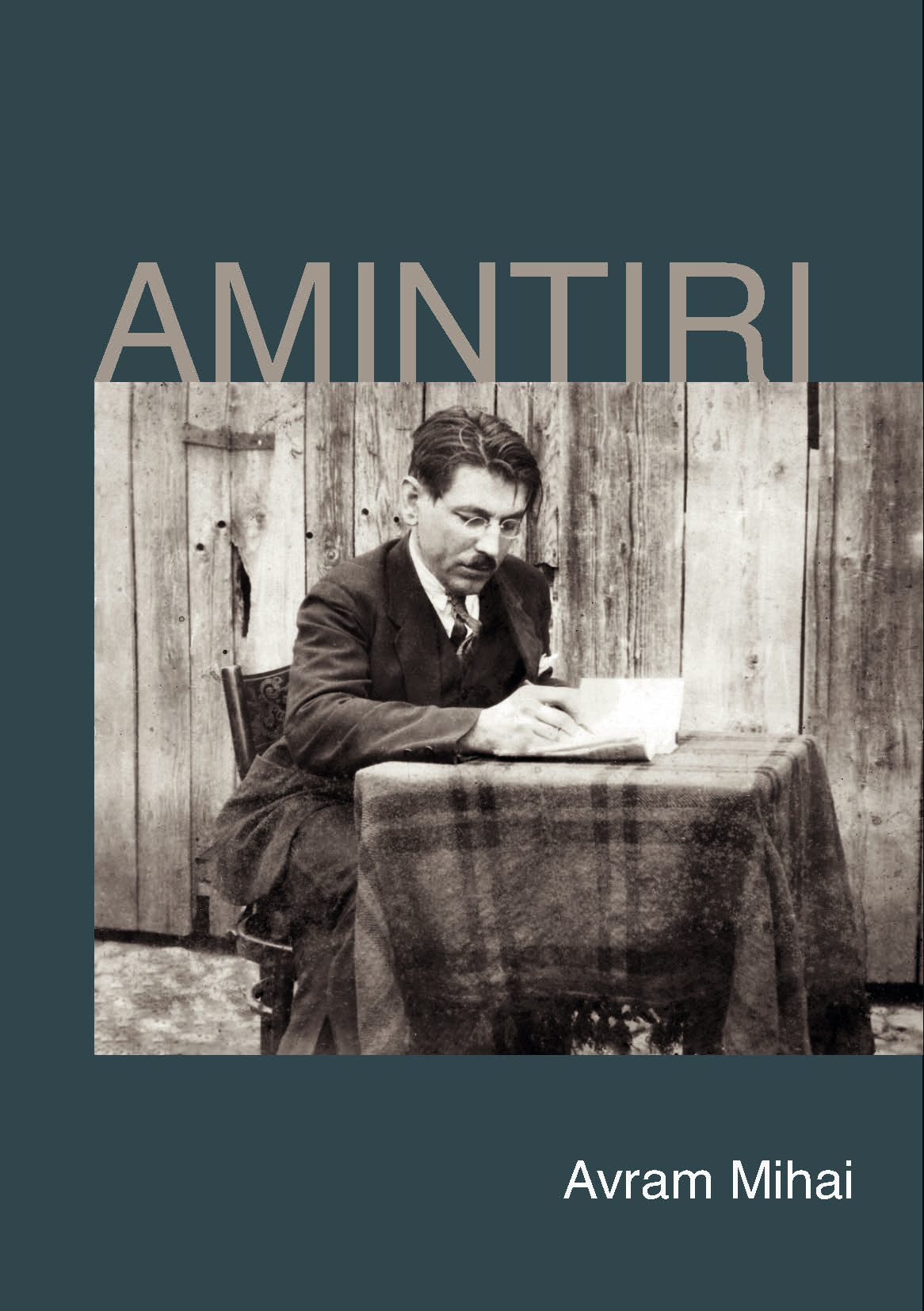Avram Mihai - Amintiri
Avram Mihai - Memories
Author(s): Mihai Avram
Contributor(s): Anca Băltan (Editor)
Subject(s): Local History / Microhistory
Published by: MUZEUL ETNOGRAFIC AL TRANSILVANIEI
Keywords: memories; memoirs; grandpa; lifetime; books; people; Avram Mihai
Summary/Abstract: "Keeping a diary or publishing your memoirs at a certain age should be a duty imposed by the state, the material accumulated after three or four generations would be invaluable, many psychological or historical problems that burden humanity would be solved. There are no memoirs, even those written by insignificant persons, that do not conceal in them social or picturesque values of the first order." (Giuseppe Tomasi di Lampedusa)I received this quote from G.L. after I finished copying the 4 notebooks of memoirs written by my maternal grandfather, Avram Mihai. "Grandfather Mihai" for us grandchildren, Vramu for close ones, for grandmother - Mihai, with a soft H, as an allint. I knew of their existence, my mother kept them in the library, but the slightly yellowed pages, full of his fussy, pencilled handwriting, didn't really entice me to go through them. At one point I thought they should be transcribed, but priorities were always other. The right time came postpandemic, perhaps at the thought of our ephemerality. And surprise and delight came as I deciphered, much more easily than I had originally thought, Grandpa's handwriting. Not only did I find myself transported into a world I had not really known, but I discovered and understood what made Grandpa the way I knew, loved and cherished him. How is the grandfather of my memories? Tall, slim, dark hair, mustache, gray-haired, humorous, hard-working, good housekeeper, serious in everything he did, a man of his word, inquisitive, inventive. He knew a lot about a lot of things different fields, he was a real encyclopedia that I turned to whenever I had a question. It's no less true that he also consulted me when he was puzzled by French. And how many of themcame to mind... And I relived the trips to Fagget, when, on the way, he told me the story of Păcală (I still know it now), to Becaș and the Bilașcu Fountain, the ritual visits to the Botanical Garden, where we used to tease the mimosa pudica in the greenhouse and climbed the tower, train trips to Bucharest, to Sebeș and Lancrăm, to Râpele Roșii and through Arini... And how much I learned from him about nature, about birds and plants, about humanity, about dignity, about respect and common sense, about fairness...What did I learn about him by transcribing his memories? That he wasmischievous child like all children, that he was hard and cold and hungry, that nothing was given to him, that he got everything through hard work and perseverance, that he never tired of searching, marveling, learning and giving. I've learned to relate differently to the times of trial and tribulation and the surprising things that happened to him, to the interesting people he met and the way he knew how to seize his chance. And I also realized to put a different value full of red and gold-bound books and scrapbooks that I'd been leafing through since before I could read. I'm sorry that many of them I didn't learn in their own timebut only now, when it's too late to explain them directly. I'm sorry he never got to write about what happened after the first his first marriage. But I'm glad that what he wrote wasn't lost that through my modest contribution, it reaches you. And how can you not agree with Tomasi di Lampedusa that" there are no memoirs, even those written by insignificant people.do not hide in them social or picturesque values of the highest order"...My thanks go to all those who have helped me and made this made this endeavor possible.The volume was originally a series of four handwritten notebooks in chemical pencil. Avram Mihai's recollections begin in his early childhood years at the end of the 19th century and end in 1921. Born in Lancrăm on May 10, 1897, Avram Mihai completed his first six years of school in his native village, being forced to work from a very young age and practicing very different trades: shoemaker's helper, a shoemaker's shoemaker's shoe-maker, a laborer for a Saxon pharmacist and a postman. He was employed at CFR Sibiu, continued his studies and witnessed many historical events such as the flight of Aurel Vlaicu, the mobilization of the Austro-Hungarian Empire, the retreat of the Germans from Alba Iulia and the entry of the Romanian Army into Transylvania, as well as the takeover of Transylvanian institutions by the Romanian authorities after the Great Union of 1918. Although she knew about the existence of the four yellowed notebooks covered with his fusty pencil and pencil, the author's granddaughter, journalist Anca Băltan, only started transcribing them in 2022. The end of the coronavirus pandemic was a good nudge, at the thought of our ephemerality.
- Page Count: 192
- Publication Year: 2024
- Language: Romanian
- eBook-PDF

